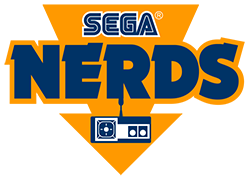
What the Casino Industry has Learned from Video Games
The video games industry is one of the biggest industries in the world. The idea that video games only appeal to children is long gone. Video games have grown to be the largest medium in the entertainment sector, worth more than the films and music industries combined. The industry has achieved this massive feat by working tirelessly to understand what drives players to continue playing and what it is they want from video games.
Realising their success, online casinos have begun to take a leaf from the video games industry’s book by using similar methods to increase customer loyalty and longevity. With every passing year, casino games are looking more and more like video games, with some sites developing games that are virtually identical to video games. The line between the two sectors is becoming increasingly blurred. Here are a few ways that the casino industry has learned from video games.
Social games and F2P
A relatively new tactic employed by video games producers is free to play (F2P) games. This innovation first began with mobile games, where the marketplace is flooded, and players are reluctant to pay for small and simple games. These game developers made their money from small, in-game purchases known as micro-transactions.
Before long, large releases, console platforms began to release free-to-play titles. Games such as World of Warcraft and PubG were released 100% free of charge and made their money by selling character upgrades and weapons skins. Game developers realised that players are more willing to try free games, and if they become popular millions of dollars could be made in microtransactions. Casinos are using a similar method. Many platforms allow players to play for free without the chance of winning real money, then charge users for refreshing their stock of in-game currency. Another way casinos try to bring new players in using free to play tactics is by offering no deposit bonuses, this means that you don’t even have to add money to receive a bonus but they are banking on you wanting to play more, with real money. To see examples of no deposit bonuses you can look at this blog post from ManekinekoCasino.com.
Emotional rewards
It’s a common trope that video gamers often spend hours and hours playing through their favourite games, but they do so with no monetary reward at the end of it. Instead of financial incentives, gamers play for hours for the emotional reward of beating a challenging boss or unlocking a rare or new part of the game.
Casino’s have realised that emotional incentives can be as powerful, if not more powerful, than monetary rewards, and have begun to incorporate the same reward systems as computer games. By using lively animations, congratulating the players, and accompanying winning money with cheerful music, casinos created an atmosphere of celebration. These emotional rewards encourage players to play for more extended periods and keep them coming back to the same sites and games.
A levelling system
Video games, especially role-playing games (RPGs), have always used levelling-up systems to reward players and track their progress through a game. The more they play, the more features, worlds, items, and character customisations they unlock. The more they unlock, the more options open, and they can achieve more within the game. This system gives players a sense of accomplishment and makes them feel like they are moving forward.
Casinos are already using levelling systems. Players will start on level 1 when they first sign up to an online casino and are encouraged to level up by playing games and reaching certain milestones. As they progress through the levels, they are rewarded with new game modes and higher wager amounts and other in-house rewards such as free spins or bonus cash.
Gamification
As we’ve seen, the gamification of online casinos is nothing new. There are many examples of how casinos are employing tried and tested video games techniques to keep players entertained and coming back for more.
Leaderboards first appeared in video games back in the arcade days of Pac-Man and space invaders. By allowing players to post their high scores and compare them with other gamers, an element of competition is developed, and players will come back to try and beat their own and other peoples scores. Casino leaderboards encourage this same social competition to their games, alongside the chance of winning money.
Casinos have also introduced the concept of achievements and goals into their games. Players are rewarded for hitting milestones, such as $100 won, by being allowed to enter new parts of the casino and play games that were previously unavailable.






